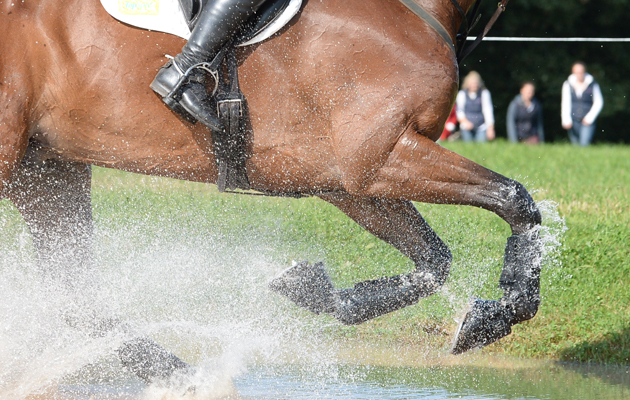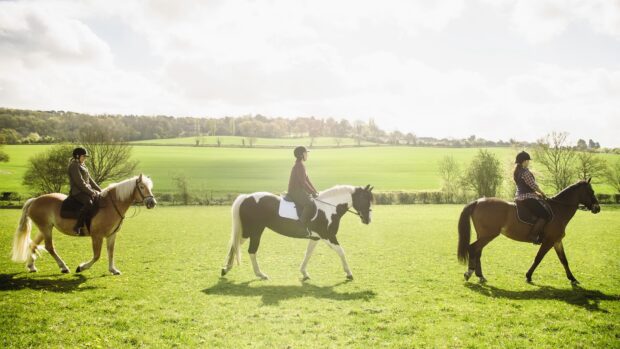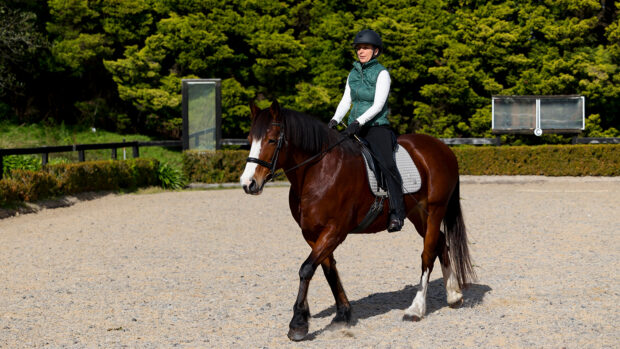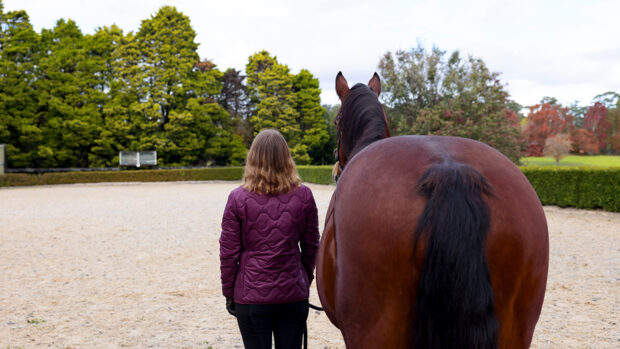However much we have prepared, things don’t always go exactly to plan on competition day. Top riders tell us how they stay focused when their competition plans go adrift
How do you cope when things go wrong on competition day?
Oliver Townend
“I think you just do. You learn to. You just have to! It’s going to happen all the time in eventing where things don’t go to plan and you just have to be quick thinking and change the plan. Often I’ll set off on novices trying to be competitive and they’ll go a little green and I’ll change the plan from being competitive to trying to get a double clear. You have to do that constantly. You’re always trying to have the best result possible but sometimes the best result is a different result from what your plan A was.”
Maria Eilberg
“You can often feel everyone has seen [your mistake]! You need to think that when people do really well it’s often forgotten very quickly so it’s not as big as you tend to think it is. It’s important to do the analysis and work out your next step — but not to dwell on it too long. Be constructive and productive about the analysis, and it’s good to go and watch other people.
“Watching the training and the warm up of other people is a really good idea, not just the tests. It’s amazing when you see the difference on how warm ups have gone to how the test has gone. You often see people struggling in the warm up, but they then go and do a great test. But you’ll see horses that have been idyllic in the warm up but they then mess up in the test. It can show the full picture of how professionals make sure that the horse is listening to them in the competition.”
Izzy Taylor
“Remember you’re dealing with an animal that is unpredictable. You may need to mentally box up the issue to allow you to get on with the rest of the day, and then get it out again later when you have the time to properly assess what happened and how to learn from it.”
Caroline Powell
“We all have those days! Horses develop at different stages and ages. What we tend to do is put them in situations that test them and to actually find out whether they are taking the job on or not. When you have one of those days, look at what’s wrong. If they fall out at the shoulder and you get a run out at a skinny fence, for example, you have to work out at what stage they started to go wrong and usually it’s the fence before. It’s a case of going back and rewinding through your mind where the problem actually started.”
What techniques do you recommend to overcome a setback at home?
Caroline Powell
“Repetition. When things go wrong just look at the basics as usually there’s something wrong in there. Whether they’re not straight, or in front of the leg — the silly things like that that they need to be. If you’ve had a problem at a fence, then you bring the fence right back to being quite small and making the horse understand what it is meant to be doing and then build its confidence up from there.”
Oliver Townend
“Always go back to basics. Go back to the start, figure the problem out from the basics and then go forward. Always start lower and build up. If you have a setback or the horse has a problem then you go back as many steps as you need to go back; whether that might be a pole on the floor or going back to the basics on the flat. You just have to go back to the things that are easy and make it all as simple as possible.”
Izzy Taylor
“Remember we all make mistakes. Take things right back to basics at home if you’ve lost confidence. Find a simple exercise you enjoy and is easy then slowly build up from that. Your horse has two eyes and a brain — allow them to use them!”
Maria Eilberg
“If you have the opportunity, perhaps see if your trainer can go with you to the next show. I know quite a few trainers who are happy to do that, especially if you can talk about things in advance. I’ve done that with a few people where we’ve gone through the tests at home to feel that they are confident at doing them and then we’ve gone to the show doing the same system so they’ve had me there to help them.
“I would also say always give yourself enough time. Time is a big thing that gets people stressed out. Always have plenty of practice run-throughs. That’s a big part of keeping everything calm; the horses feed off the rider. If the rider can get into a routine and stay focused then the horse can stay relaxed as well.”
You might also be interested in:
It’s small wonder many mothers don’t have the energy to combine sport with parenthood. Each is all consuming, arguably incompatible.

Competing with your horse alone? Take a look at our top tips for success

Competing mums: 9 top tips to make it work

Subscribe to Horse & Hound magazine today – and enjoy unlimited website access all year round
Horse & Hound magazine, out every Thursday, is packed with all the latest news and reports, as well as interviews, specials, nostalgia, vet and training advice. Find how you can enjoy the magazine delivered to your door every week, plus options to upgrade your subscription to access our online service that brings you breaking news and reports as well as other benefits.




